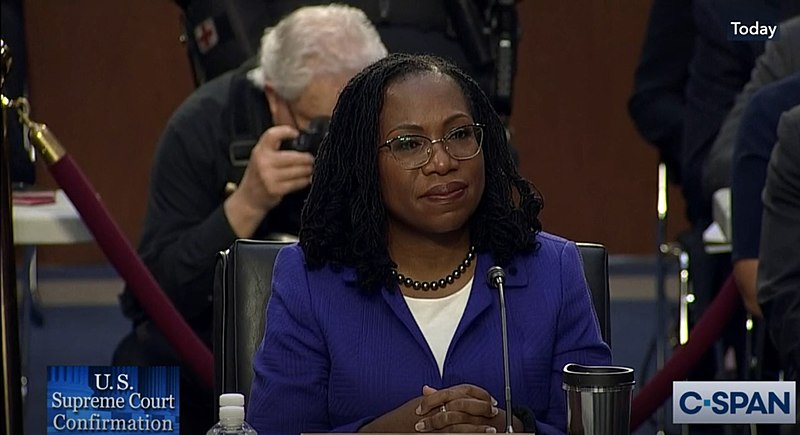Earlier this month, American history was made. On April 7, Former Vice-Chair of the United States Sentencing Commission Ketanji Brown-Jackson was confirmed by a vote of 51-47 to the United States Supreme Court. This confirmation was historic for many reasons: Brown-Jackson is the first Black woman to be confirmed as a Supreme Court justice, and her confirmation ends the white male majority in the highest court in the land for the first time in its 233 year history.
I remember President Biden making the promise that he would choose a Black woman as his Supreme Court nominee if a vacancy arose. That memory carries the feeling of excitement but also the backlash that came with it. Many people expressed anger as to why Biden would be selecting a Black woman because we make up such a small portion of the population. Despite the significant strides in education, governmental presence and entrepreneurship made by Black women over the last decade, I find it disheartening that we are still being regarded as insignificant.
There were also concerns about the idea of selecting someone based on their race. I say race because there seemed to be no issue when former president Donald Trump announced his Supreme Court pick would be a woman. From this, I believe gender wasn’t the source of the controversy. The day Ketanji Brown Jackson was selected, I was inspired by the whole ordeal. A Harvard College and Harvard Law School graduate with dark skin, glasses and Sisterlocks being nominated to such a high position is something I truly didn’t think would happen in my lifetime. Ideally, it shouldn’t have even come as a surprise: it’s 2022, and we shouldn’t have a lack of diversity in the Supreme Court in the first place. Representation is so important because young Black girls across America should be able to see people who look like them in positions of power and understand that they too can do that and even more.
For generations, our Supreme Court has not reflected the diversity of this country. The U.S. is rich with people of countless different cultures and backgrounds. Why shouldn’t one of the most important branches of our government be representative of that? I feel so fortunate to be able to witness so many additions to modern-day Black history. From watching the very first Black family move into the White House in 2008, the first Black and first female vice president in 2020 and now the first Black female supreme court justice.
More diversity in our government can never be a bad thing. How can we ever efficiently make laws that consider the many different kinds of people all across America if our politicians come from only a select few backgrounds? On a personal level, growing up in Massachusetts as a young Black woman I always knew what it is like to want to have role models that looked like you or had a story similar to yours. There is truly no way for me to explain the significance of having a connection through a shared experience. I grasped onto any form of representation I saw. I could not contemplate how there were still firsts of anything in this day and age.
One of my favorite quotes of all time is from Shirley Chisholm, who was the first African American woman in Congress as well as the first African American and the first woman to seek the Democratic nomination for president. It reads, “If they don’t give you a seat at the table, bring in a folding chair.” It took me a long time to fully believe that.
Coming to the realization that I could do whatever I wanted to do if I set my mind to it has been one of the most impactful lessons I have learned in my life. Learning to make a mark, even if that meant having to be the first. Black women and people from so many other ethnic backgrounds are entitled to representation in all respects. We do matter and we are so much more than our numbers.
Christmaelle Vernet can be reached at [email protected].


















maxine scott • Apr 26, 2022 at 3:18 pm
Ketanji Jackson does not have braids she has Sister Locks!!!!!